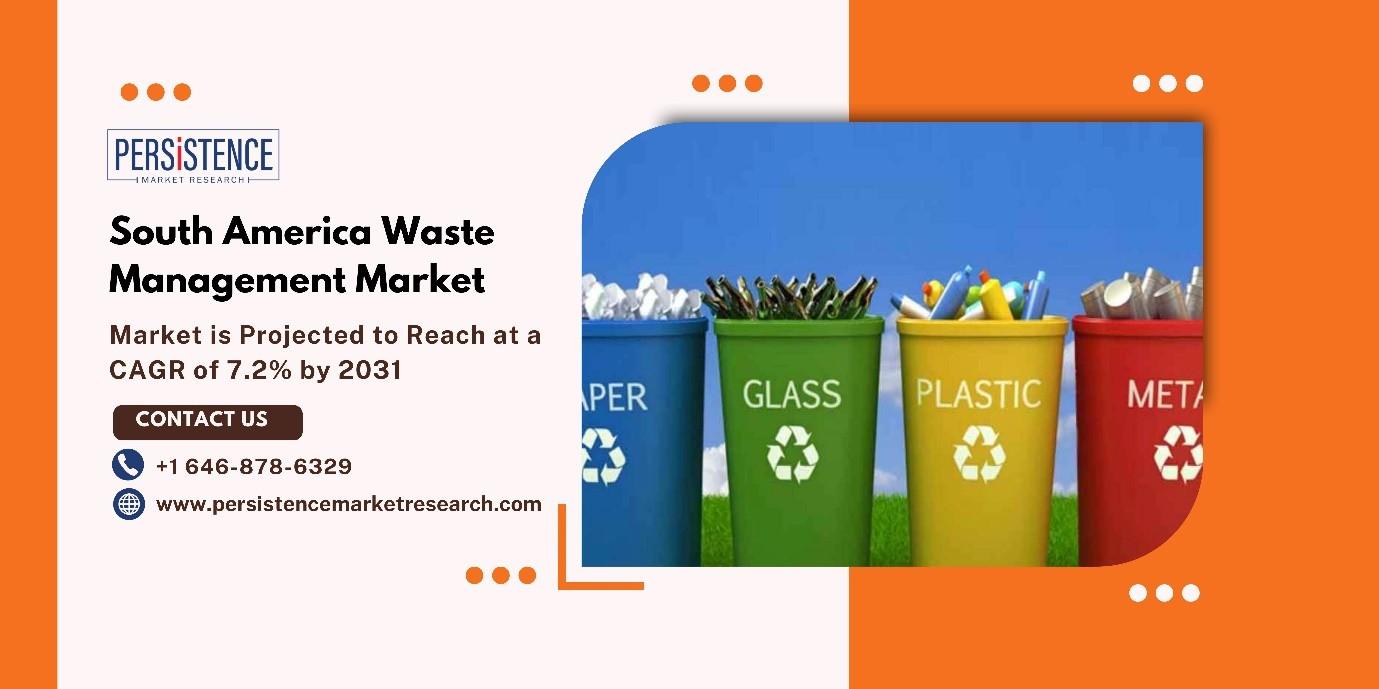
As South American countries grapple with rising waste volumes, the waste management market is evolving to meet these challenges. Brazil, Argentina, and Chile are investing in cutting-edge technologies and infrastructure to improve waste management practices. The emphasis is on recycling, waste-to-energy solutions, and reducing landfill reliance. Government policies are becoming more supportive of these initiatives, aiming to promote sustainability and environmental protection. This growth in the market reflects a shift towards more responsible waste management practices and a commitment to addressing the region's environmental needs.
South America's waste management market is experiencing a notable boom, driven by a combination of regulatory changes, increasing urbanization, and growing environmental awareness. As the region faces mounting challenges related to waste generation and disposal, innovative solutions and investments are transforming waste management practices. This blog explores the key factors fueling the growth of South America's waste management market, the current market dynamics, and future trends.
Key Drivers of Growth
Urbanization and Population Growth: Rapid urbanization and population growth are significantly increasing waste generation across South America. As cities expand and populations rise, the volume of municipal and industrial waste continues to grow, creating a demand for more efficient and scalable waste management solutions.
Regulatory Changes and Government Initiatives: Governments across South America are implementing stricter regulations and policies to address waste management challenges. Initiatives such as extended producer responsibility (EPR) programs, recycling mandates, and landfill diversion targets are driving the adoption of advanced waste management technologies and practices. These regulatory changes are pushing businesses and municipalities to invest in improved waste management infrastructure.
Environmental Awareness and Sustainability: There is a growing awareness of environmental issues and the need for sustainable waste management practices among consumers and businesses. This heightened environmental consciousness is leading to increased demand for recycling, composting, and waste-to-energy solutions. Companies and municipalities are investing in green technologies and sustainable practices to align with environmental goals and meet consumer expectations.
Investment in Infrastructure: Significant investments in waste management infrastructure are contributing to market growth. Governments, private companies, and international organizations are funding the development of state-of-the-art waste processing facilities, recycling centers, and waste-to-energy plants. These investments are enhancing the efficiency and effectiveness of waste management systems in the region.
Technological Advancements: Technological advancements in waste management are driving market growth. Innovations such as smart waste bins, automated sorting systems, and advanced waste-to-energy technologies are improving the efficiency of waste collection, sorting, and disposal. These technologies are helping to reduce operational costs and increase the effectiveness of waste management systems.
Market Dynamics
Regional Disparities: While some South American countries, such as Brazil and Chile, are leading the way in waste management advancements, others are still developing their waste management infrastructure. The disparity between developed and developing countries within the region creates varied opportunities and challenges. Countries with more advanced systems are attracting investment and setting benchmarks for others to follow.
Private Sector Involvement: The private sector is playing an increasingly important role in South America's waste management market. Private companies are partnering with governments and municipalities to provide waste management services, invest in infrastructure, and develop innovative solutions. This collaboration is driving efficiency and fostering competition in the market.
Circular Economy Initiatives: The shift towards a circular economy is gaining momentum in South America. Circular economy principles emphasize reducing waste, reusing materials, and recycling resources. This approach is leading to the development of new business models and practices that focus on minimizing waste and maximizing resource recovery.
Public-Private Partnerships: Public-private partnerships (PPPs) are becoming a key strategy for improving waste management in South America. These partnerships leverage the expertise and resources of both the public and private sectors to develop and implement effective waste
management solutions. PPPs are facilitating the development of advanced infrastructure and innovative technologies.
Future Trends
Increased Recycling and Composting: The future of waste management in South America will likely see a greater emphasis on recycling and composting. As awareness of the environmental benefits of these practices grows, more municipalities and businesses will invest in recycling programs and composting facilities. This trend will contribute to higher diversion rates and reduced landfill use.
Expansion of Waste-to-Energy Solutions: Waste-to-energy technologies, which convert waste into energy through processes such as incineration and anaerobic digestion, are expected to play a larger role in South America's waste management landscape. These solutions help address waste disposal challenges while generating renewable energy, making them an attractive option for many countries in the region.
Smart Waste Management Systems: The adoption of smart waste management systems will continue to grow. Technologies such as IoTenabled waste bins, real-time monitoring, and data analytics will enhance waste collection efficiency, optimize routes, and reduce operational costs. These innovations will contribute to more effective and sustainable waste management practices.
Focus on Plastic Waste: Addressing plastic waste will be a major focus in the coming years. Efforts to reduce plastic use, improve recycling rates, and develop alternative materials will be central to waste management strategies. Governments and businesses will implement initiatives to tackle plastic pollution and promote sustainable alternatives.
Enhanced Policy Frameworks: The development of comprehensive policy frameworks will be crucial for guiding waste management practices in South America. Governments will continue to refine regulations and policies to address emerging challenges and support sustainable waste management. Clear and effective policy frameworks will provide the foundation for long-term market growth and environmental protection.
Conclusion
South America's waste management market is booming due to a combination of rapid urbanization, regulatory changes, environmental awareness, and technological advancements. As the region confronts the challenges of increasing waste generation and disposal, innovative solutions and significant investments are driving market growth. The future of waste management in South America will be shaped by a focus on recycling, composting, waste-toenergy technologies, and smart systems, along with enhanced policy frameworks. The ongoing evolution of the waste management sector presents exciting opportunities for sustainability and efficiency in South America's waste management landscape.
